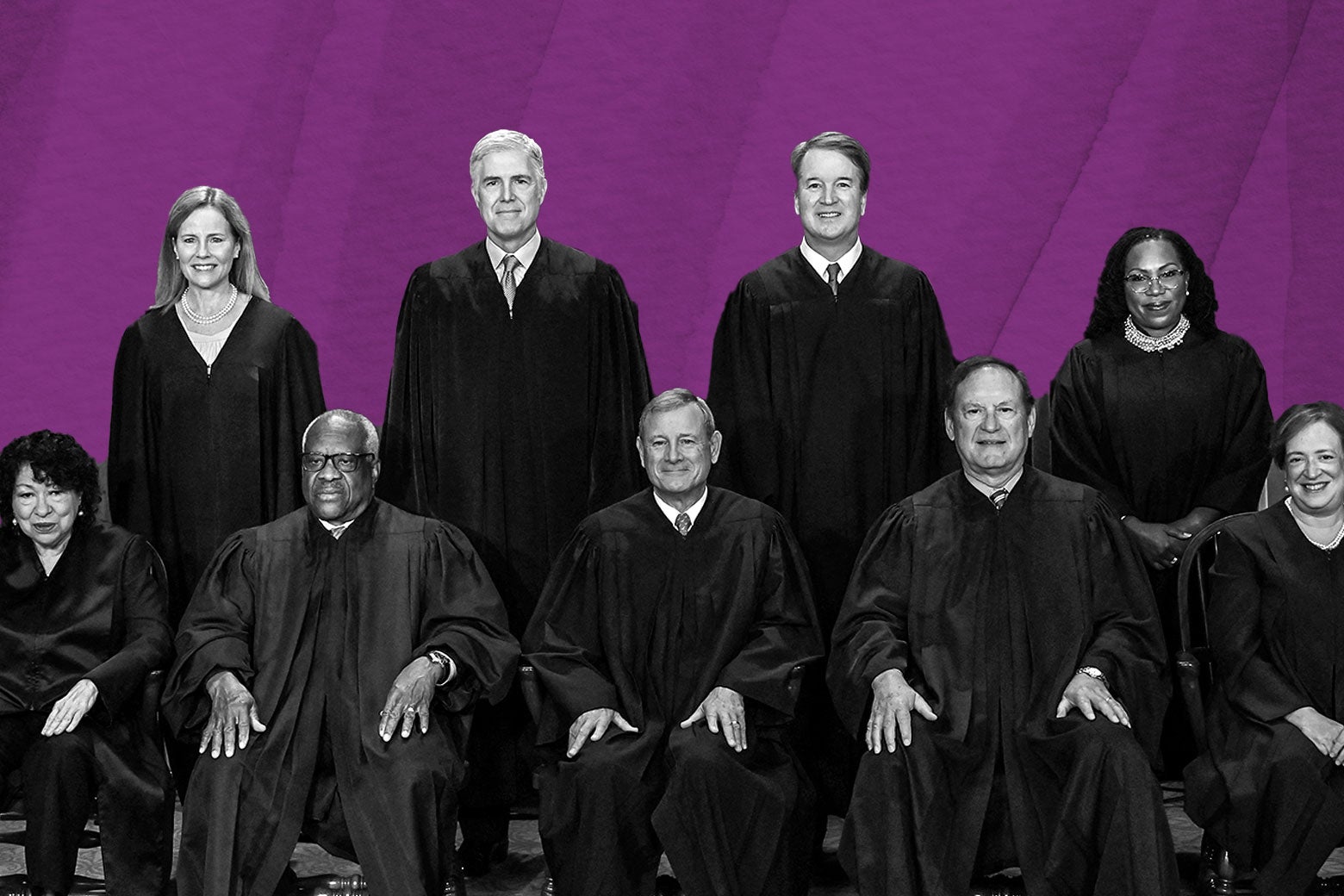Sign up for the Slatest to get the most insightful analysis, criticism, and advice out there, delivered to your inbox daily.
This week’s episode of Amicus is a mailbag special in which Dahlia Lithwick and Mark Joseph Stern answer listeners’ burning questions about the law and its odds of surviving a second Trump administration. Amicus listeners have a lot of smart questions, so we’re starting a new occasional “Dear (Juris)Prudence” series where we share your questions, and Mark and Dahlia’s answers. Write to amicus@slate.com to pose a question to Dahlia and Mark. The following transcript has been shortened for length and clarity.
Dear (Juris)Prudence,
I would love to hear your best attempts to help people who are not news consumers—and without being panic ridden (like I often feel)—about the impact of the courts. How can we communicate better with people who are not news consumers about this critical topic that was under discussed and under argued as a reason for voting?
—Brian Lackman
Dahlia Lithwick: Brian, you are probably too young to remember the song “Killing Me Softly,” but your letter killed me softly. This is the thing that Mark and I have been waving our hands about, complaining about, worrying about for, I don’t know, Mark, I want to say … forever?
There’s this enduring sense that the court gets covered as though it is European soccer, or as though it is something that is happening in Rome where we read the entrails and then we write about them for two weeks in June, while failing week after week, year after year, election after election, to give folks any sense of what the court actually does, and how that, in turn, connects to their lives as they’re lived, and how all that in turn connects to how we vote and think about democracy.
I’m not quite sure what to tell you, other than that Mark and I have tried as hard as we can to make these issues exigent and urgent. We’ve thought a lot about the ways in which we have often covered the court in a fashion that disserves the mission that you are setting forth, and we think a lot about this in the context of state supreme courts and state attorneys general, and lower federal courts, and the entire judicial system, that just gets covered as though it’s a Shakespeare play.
I’m not entirely sure how we can do better at this. I know it’s a thing that we have many, many editorial meetings about. But it does seem to me that the American public knows a lot more about what is happening at the courts, and why, than they did five years ago. It also seems to me that they knew more five years ago than they knew five years before. And so in my view, this is not inevitable; it is a process. I think that court coverage and journalism, and television journalism, and all the amazing Substacks that you all subscribe to about the courts are doing a really, really good job of filling in that void.
But I absolutely agree with you, Brian, that we treated the court as though it was a kind of a self-effectuating democracy wind-up toy that didn’t have anything to do with anyone’s lives for a really long time.
Mark Joseph Stern: I agree. I think, first of all, this can’t just be a conversation that happens around elections. This has to be a 24-7 conversation, which is what we’re trying to do here on Amicus and at Slate. Most of our readers and listeners are read up on this, and are not the ones who need persuading. So maybe talk to your friends and family about what’s actually going on in the courts and why it matters as much, if not often more so, than what’s going on in Congress and the executive branch.
And then I would just say we need to continue to draw these clear lines of accountability around what is happening that is bad, that people dislike, and how courts are the author of that misery. For instance, the incredibly high rate of child poverty in Texas and children unable to get insurance in Texas, as a direct result of the Supreme Court blocking mandatory Medicaid expansion as part of the Affordable Care Act. A number of mass shootings can be attributed to court decisions that have blocked gun control laws that would’ve prevented the shooter from accessing the firearm. There are many, many environmental catastrophes and environmental horror stories that are the result of the courts hemming in the EPA and restricting the government’s ability to protect us from polluters. We can go on down the line.
It’s just really hard because in some ways these are both human interest stories and legal stories. You have to grasp the law and talk about the law, and then you have to talk about the direct impact it has on people’s lives. And I think that legal reporters are disinclined to do that as a class, because often we still think of the law as something that sort of exists above the clouds.
We pull up the statute, we talk about the precedent, but we need to continue to press into people’s lives and what is happening on the ground and draw those connections so that people understand this bad thing that’s happening to you? It’s not just because of something that Congress did or even your state legislature. It’s ultimately because of something that the Supreme Court or an unelected federal judge did, because they’re the ones who truly rule over you.
So we’ll continue trying to do it. But it’s going to be a hard slog and it’s going to be slow progress, because especially as we enter a new Trump term, Trump sucks all of the air out of the room and it is very, very difficult to get people to care about what’s happening at SCOTUS.

